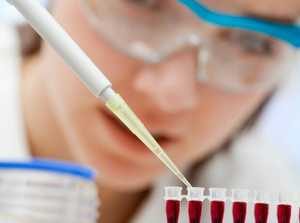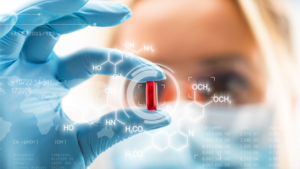Bay Biosciences provides high quality, clinical grade bio-specimens, cryogenically preserved sera (serum), plasma and peripheral blood mononuclear cells (PBMC) biofluid samples from patients diagnosed with Sjögren’s syndrome.
The sera (serum), plasma and PBMC biofluid specimens are processed from patient’s peripheral whole-blood using customized collection and processing protocols. The Sjögren’s syndrome bio-specimens are collected from unique patients diagnosed with Sjögren’s syndrome and are provided to a valued pharmaceutical customer for research, diagnostics, discovery and drug development.
Detailed clinical data, Sjögren’s syndrome patients history, symptoms, complete blood count (CBC), elevated biomarker levels, genetic and metabolic information, histopathological findings, annotations associated with Sjögren’s syndrome specimens is provided to a valued customer for research, development and drug discovery. The Sjögren’s syndrome sera (serum), plasma and peripheral blood mononuclear cells (PBMC) biofluid are processed from patients peripheral whole-blood using customized collection and processing protocols.
Sjögren’s Syndrome Overview
Sjögren’s syndrome (SS) is a systemic, long-term autoimmune disease that affects the body’s moisture-producing (lacrimal and salivary) glands and often seriously affects other organs systems, such as the lungs, kidneys, and nervous system. Sjögren’s syndrome is identified by its two most common symptoms, dry eyes and a dry mouth.
The condition often accompanies other immune system disorders, such as rheumatoid arthritis and Systemic Lupus Erythematosus (SLE). About half of the time Sjögren’s syndrome occurs alone, and the other half it occurs in the presence of another autoimmune connective tissue disease. In Sjogren’s syndrome, the mucous membranes and moisture-secreting glands of the eyes and mouth are usually affected first, resulting in decreased tears and saliva. Although Sjogren’s syndrome can develop in patients at any age, most patients affected are older than 40 years at the time of diagnosis. The condition is much more common in older women. Treatment focuses on relieving symptoms. As a systemic disease, affecting the entire body, symptoms may remain steady or worsen overtime.
According to the Sjögren’s foundation it is estimated that there are four million Americans living with this disease, making it one of the most prevalent autoimmune diseases in the Unites States.
Causes of Sjögren’s Syndrome
Exact causes of Sjögren’s syndrome are unknown, but it is an autoimmune diseases. Patients with Sjögren’s syndrome have abnormal proteins in their blood. This suggests that the immune system, which normally functions to protect the body against cancers and infections, is reacting against its own tissue. The decrease in tears and saliva seen in Sjögren’s syndrome occurs when the glands that produce these fluids are damaged by inflammation. Research suggests that genetic factors and possibly viral infections may predispose people to developing Sjögren’s syndrome.
Signs and Symptoms of Sjögren’s Syndrome
Dry mouth is a common symptom of Sjögren’s syndrome, which can increase the risk of cavities. It can also make it more difficult to speak or swallow. Chewing gum or sucking on candies may help with this symptom. In Sjögren’s syndrome dryness of the eyes often occur, too. This may feel like a burning sensation or like something is in your eye.
Sjögren’s syndrome can affect the whole body. Some individuals have vaginal dryness, dry skin, fatigue, rashes, or joint pain. Sjögren’s syndrome can cause inflammation of organs like the kidneys or lungs. Sjögren’s syndrome patients may have constant inflammation, your doctor might prescribe medications to help prevent organ damage. These medications are called disease-modifying antirheumatic drugs. They help tamp down the immune system even more than immune-suppressing drugs.
Risk Factors of Sjögren’s Syndrome
There’s no one specific cause or risk factor for developing Sjögren’s syndrome. Nine out of 10 patients who have Sjögren’s syndrome are women, and postmenopausal women are particularly likely to develop the problem. Research is currently being done to see if estrogen is associated with the condition.
Other autoimmune disorders are often present, and a family history of the condition appears to increase your risk of developing Sjögren’s syndrome.
Diagnosis of Sjögren’s Syndrome
Sjögren’s syndrome diagnosis depends on a combination of symptoms, physical examination, blood tests, and sometimes special studies. Dry eyes and mouth may be early signs of the condition but require further investigation, because these symptoms can be caused by many other conditions or side effects of medications. Special tests may assess any decrease in tear or saliva production. An eye examination is helpful in detecting any eye changes seen in Sjögren’s syndrome. Blood tests can determine the presence of antibodies (immune system proteins that help destroy foreign invaders) typical of the disease. Typical antibodies include anti-nuclear antibodies (ANA), anti-SSA and SSB antibodies or rheumatoid factor, but these are not always present. Biopsies of saliva glands around the face or under the surface of the inner lip also may be used to make a diagnosis.
Treatment of Sjögren’s Syndrome
Sjögren’s syndrome treatment is designed to lessen the most bothersome symptoms. Dry eyes usually respond to artificial tears applied regularly during the day or to gels applied at night. Other measures, such as plugging or blocking tear ducts, can be used in more severe cases. Eye drops that reduce inflammation in the glands around the eyes, such as cyclosporine (Restasis), may be used to increase tear production.
Drinking water, chewing gum, or using saliva substitutes may relieve dry mouth. Some Sjögren’s syndrome patients benefit from using prescription medications that stimulate saliva flow, such as pilocarpine (Salagen) or cevimuline (Evoxac). If patients develop yeast infections, anti-fungal therapies may be used. Humidifiers and nasal saline irrigation may improve nasal dryness. Medications that reduce gastric acid (such as proton-pump inhibitors and H2 blockers) may lessen symptoms of acid reflux. Treatments may help relieve some of the dryness, but usually some dryness persists.
Sjögren’s syndrome patients should receive regular dental care to prevent cavities and tooth loss that may occur as a complication of Sjögren’s. Patients with dry eyes should see an ophthalmologist (eye doctor) regularly for signs of damage to the cornea. Patients with excessive redness and pain in the eyes should be evaluated for infections.
Hydroxychloroquine (Plaquenil), an antimalarial drug used in lupus and rheumatoid arthritis, may be helpful in some patients with Sjögren’s syndrome by reducing joint pain and rash experienced. Patients with rare but serious systemic symptoms, such as fever, rashes, abdominal pain, or lung and kidney problems, may require treatment with corticosteroids such as prednisone (Deltasone) and/or immunosuppressive agents like methotrexate (Rheumatrex), azathioprine (Imuran), mycophenolate (Cellcept) or cyclophosphamide (Cytoxan). In addition, researchers are evaluating rituximab (Rituxan) and other biological therapies to treat cases of Sjögren’s that affect the entire body.

Bay Biosciences is a global leader in providing researchers with high quality, clinical grade, fully characterized human tissue samples, bio-specimens and human bio-fluid collections from cancer (tumor) tissue, cancer serum, cancer plasma cancer PBMC and human tissue samples from most other therapeutic areas and diseases.
Bay Biosciences maintains and manages it’s own bio-repository, human tissue bank (biobank) consisting of thousands of diseased samples (specimens) and from normal healthy donors available in all formats and types. Our biobank procures and stores fully consented, deidentified and institutional review boards (IRB) approved human tissue samples and matched controls.
All our human human tissue collections, human specimens and human bio-fluids are provided with detailed samples associated patient’s clinical data. This critical patient’s clinical data includes information relating to their past and current disease, treatment history, lifestyle choices, biomarkers and genetic information. Patient’s data is extremely valuable for researchers and is used to help identify new effective treatments (drug discovery & development) in oncology, other therapeutic areas and diseases. This clinical information is critical to demonstrate their impact, monitor the safety of medicines, testing & diagnostics, and generate new knowledge about the causes of disease and illness.
Bay Biosciences banks wide variety of human tissue samples and biological samples including cryogenically preserved -80°C, fresh, fresh frozen tissue samples, tumor tissue samples, FFPE’s, tissue slides, with matching human bio-fluids, whole blood and blood derived products such as serum, plasma and PBMC’s.
Bay Biosciences is a global leader in collecting and providing human tissue samples according to the researchers specified requirements and customized, tailor made collection protocols. Please contact us anytime to discuss your special research projects and customized human tissue sample requirements.
Bay Biosciences provides human tissue samples (human specimens) from diseased and normal healthy donors; including peripheral whole-blood, amniotic fluid, bronchoalveolar lavage fluid (BAL), sputum, pleural effusion, cerebrospinal fluid (CSF), serum (sera), plasma, peripheral blood mononuclear cells (PBMC’s), saliva, Buffy coat, urine, stool samples, aqueous humor, vitreous humor, kidney stones, renal calculi, nephrolithiasis, urolithiasis and other bodily fluids from most diseases including cancer. We can also procure most human bio-specimens and can do special collections and requests of human samples that are difficult to find. All our human tissue samples are procured through IRB approved clinical protocols and procedures.
In addition to the standard processing protocols Bay Biosciences can also provide human plasma, serum, PBMC bio-fluid samples using custom processing protocols, you can buy donor specific sample collections in higher volumes and specified sample aliquoting from us. Bay Biosciences also provides human samples from normal healthy donors, volunteers, for controls and clinical research, contact us Now.
日本のお客様は、ベイバイオサイエンスジャパンBay Biosciences Japanまたはhttp://baybiosciences-jp.com/contact/までご連絡ください。

